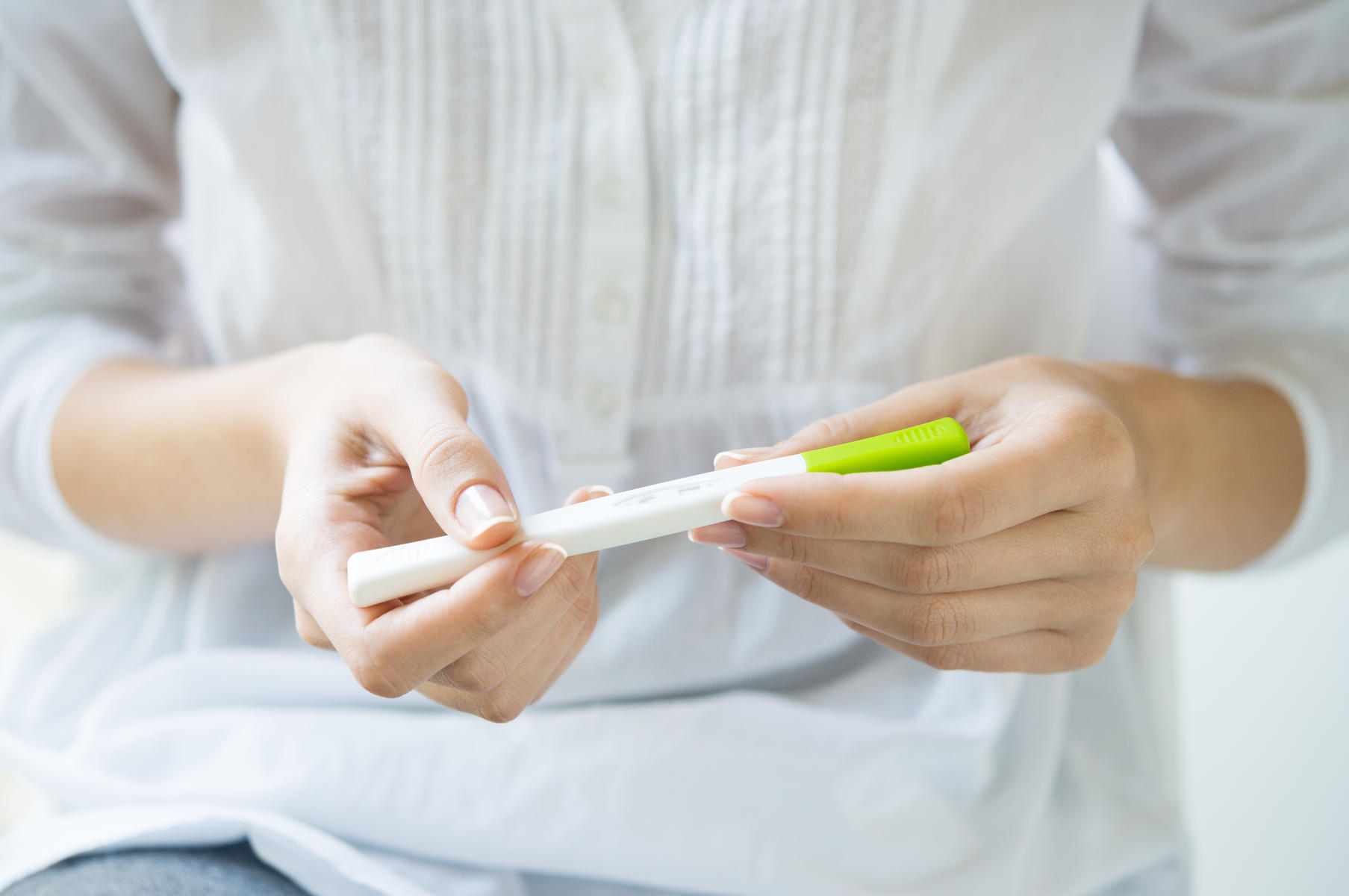
Believe it or not, pregnancy test design hasn't changed (outside of the digital element, of course) since 1987. That means we've been using the same plastic, non-biodegradable tests since Ronald Reagan was president and Whitney Houston first sang "I Wanna Dance With Somebody." That's not only a little bit eyebrow-raising in and of itself, but it's also bad news for the environment, as most end up in landfills, not to mention women's privacy, given that you have no choice but to toss 'em in the wastebasket. (Really, the only people who likely appreciate the latter are TV show writers, who have been able to build plenty of plotlines around pregnancy tests found in garbage bins!) Well, finally, two women have come up with a biodegradable alternative! The first-ever flushable pregnancy test is set to hit the market in the middle of next year.
Just like the pregnancy tests that have been available for 30 years, the new sustainable option from Lia Diagnostics — founded by Bethany Edwards and Anna Simpson in 2015 — reacts to urine to determine whether you're expecting or not and also uses two lines for a positive result and one for a negative. There's a larger collection area than other tests, but the key difference lies in the material that the test is made out of: a special paper that will disperse in water and biodegrade, which means it can be flushed away. Brilliant!
So far, the company has scored two kinds patents (for design and utility) of several they need, as well as FDA approval. Lia tests will initially be sold on the company's site and on Amazon and cost somewhere between $9 to $22. TechCrunch also reports that visitors to the Lia website can choose to donate a test for $10 to partner organizations the company is working with, including Planned Parenthood Global, SOS in Canada, and others.
Ultimately, the tests will be available worldwide. And being able to tell a woman if she's expecting or not is just the tip of the iceberg for Lia. “What we’ve done here is essentially creating a new category of water-dispersable, biodegradable diagnostics,” Edwards tells TechCrunch. “This is just the start for us.” So very cool!

